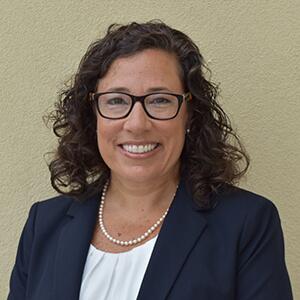The Pro Bono Resource Center Launches Voluntary Pro Bono Reporting
How many hours of pro bono service have you contributed in the last year? In the last two years? In the last ten?
North Carolina attorneys are generous with their time and financial contributions. Rule 6.1 of the North Carolina Rules of Professional Conduct encourages attorneys to provide at least fifty hours of pro bono legal services annually, and to contribute financial support to organizations that provide legal services to persons of limited means. However, there has not been a statewide mechanism to track this volunteerism, recognize pro bono efforts, and identify pro bono trends and unmet legal needs. To fill this void, the North Carolina Equal Access to Justice Commission adopted a resolution in June 2016, signed by Chief Justice Mark D. Martin, chair of the Commission. This resolution outlines a commitment to developing a voluntary pro bono reporting and recognition program through the North Carolina Pro Bono Resource Center.
With the introduction of voluntary pro bono reporting, North Carolina will join a national trend of capturing this data. The American Bar Association Standing Committee on Pro Bono & Public Service describes pro bono reporting as a “simple mechanism for attempting to increase delivery of legal services to [the] poor and level of service to [the] community,” providing data essential for the design of successful programs. Twenty-two other states already track attorney pro bono participation: thirteen states, including Georgia, Texas, and Virginia, have voluntary reporting in place, while nine states, including Florida, Maryland, and New York, require mandatory reporting of pro bono legal service.
Collecting information about attorney pro bono work will allow the Pro Bono Resource Center to quantify the level and types of pro bono service provided by North Carolina attorneys. This information will help the Center improve how attorneys find available pro bono opportunities, identify gaps in unmet legal needs, and highlight best practices in pro bono work. The information will also enable the Center to recognize attorneys for outstanding and sustained pro bono legal service.
North Carolina attorneys began sharing information about their pro bono work in January 2017 through an online form found at ncprobono.org. The form only takes ten minutes to complete, and collects information on the attorney’s pro bono involvement during the 2016 calendar year. While we hope all respondents will allow us to recognize their efforts, the form does provide an option to remain anonymous upon submission. Attorneys who meet the 50 hour goal included in Rule 6.1 will join the North Carolina Pro Bono Honor Society and will receive a certificate honoring that achievement.
The reporting form will collect information about all aspects of professional responsibility captured in Rule 6.1, which includes the following activities: providing pro bono legal services, participating in activities to improve the law, and contributing financial support to legal service providers. Respondents will also be able to share information about their community service and non-legal volunteerism, described in the Preamble to the Rules of Professional Conduct. This new initiative from the Pro Bono Resource Center will give a fuller picture of all the ways North Carolina attorneys support their communities.
About the Author

Sylvia Novinsky
sylvia@ncprobono.org | ncprobono.org
Sylvia K. Novinsky is the Pro Bono Resource Center’s inaugural director. Chief Justice Mark D. Martin launched the North Carolina Pro Bono Resource Center, the newest program of the North Carolina Equal Access to Justice Commission, in 2016.
The Pro Bono Resource Center is tasked with increasing pro bono participation statewide, initially focusing on connecting recent law graduates with projects that address legal needs in Wake and Mecklenburg counties. It will also provide a way for North Carolina lawyers to report on their pro bono service to clients in need, and will encourage and support this work through recruitment, training and communication. The Center will be one of only a handful of statewide pro bono resource centers in the country.
Sylvia comes to this role after nearly twenty years of service to the University of North Carolina School of Law, where she most recently held the role of Assistant Dean for Public Service Programs. During her tenure at Carolina Law, Sylvia founded and advised the UNC Law Pro Bono Program, a national model for inspiring students and alumni to participate in pro bono service. She has also served as the institution’s Associate Director for Public Interest Law, Assistant Dean for Student Affairs, and Associate Dean for Student Affairs. Sylvia also spends time inside the classroom as an adjunct professor, teaching “Spanish for American Lawyers” and “Leadership for Lawyers.”
Read More by Sylvia >
